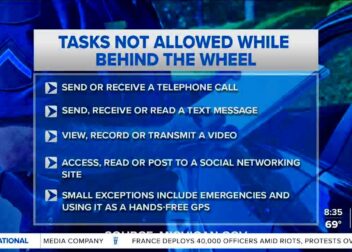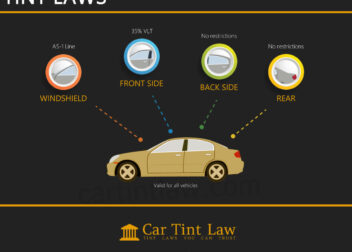North Carolina Motorcycle Laws Explained
North Carolina has specific laws to ensure the safety of motorcycle riders and others on the road. Understanding these laws is essential for both new and experienced riders. This post will break down key regulations, licensing requirements, safety standards, and more, helping you navigate the motorcycle landscape in the state.
Motorcycle Licensing Requirements in North Carolina

To ride a motorcycle legally in North Carolina, you need a valid motorcycle endorsement or a motorcycle learner’s permit. Here’s a quick breakdown of the requirements:
- Age Requirement: You must be at least 16 years old.
- Basic Driver’s License: You must have a valid North Carolina driver’s license.
- Motorcycle Safety Course: Completing a DMV-approved motorcycle safety course may waive the skills test.
Once you have the learner’s permit, you can practice riding under certain conditions, such as:
- Riding only during daylight hours
- Not carrying passengers
- Staying within certain limits set by the DMV
After gaining experience and demonstrating riding proficiency, you can apply for the full motorcycle endorsement.
Motorcycle Equipment and Safety Standards
Motorcycle safety is not just about riding skills; it also involves having the right equipment. North Carolina law requires that motorcycles meet certain safety standards. Here are some key equipment requirements:
- Brakes: Motorcycles must have at least one working brake on both the front and rear wheels.
- Lights: Headlights, taillights, and turn signals must be operational and meet visibility standards.
- Mirrors: Motorcycles must have at least one rearview mirror.
- Footrests: If carrying a passenger, the bike must have proper footrests.
Riders are encouraged to wear safety gear, including:
- Helmet: North Carolina law mandates helmet use for riders under 21. It’s strongly advised for all riders.
- Protective Clothing: Jackets, gloves, and pants made from durable materials can reduce injury risks.
Following these equipment standards helps keep riders safe on the road.
Helmet Laws and Safety Gear for Riders
Wearing a helmet is one of the most effective ways to protect yourself while riding a motorcycle. In North Carolina, helmet laws are in place to promote safety among riders. Let’s take a closer look at these laws and the recommended safety gear that every rider should consider.
In North Carolina, the helmet laws state that:
- Riders under 21: Must wear a helmet at all times while riding.
- Riders over 21: Can choose not to wear a helmet if they have a motorcycle endorsement and carry at least $10,000 in medical insurance coverage.
While the law allows some flexibility, wearing a helmet is a smart choice for everyone. Helmets can significantly reduce the risk of head injuries in an accident. Besides helmets, there are other essential safety gear options:
- Jacket: A durable, padded motorcycle jacket can protect your arms and torso.
- Pants: Wear long pants made of protective material, like leather or specialized textile gear.
- Gloves: Gloves provide grip and protection for your hands in case of a fall.
- Boots: Sturdy boots can protect your feet and ankles while providing better control.
Investing in quality safety gear is a wise decision that can help you stay safe and enjoy your ride to the fullest.
Understanding Motorcycle Insurance Requirements
Insurance is not just a legal requirement; it’s also a crucial aspect of protecting yourself and your motorcycle. In North Carolina, there are specific motorcycle insurance requirements that every rider must understand.
The state mandates that all motorcycle owners carry liability insurance, which includes:
- Bodily Injury Liability: Covers injuries you may cause to others in an accident.
- Property Damage Liability: Covers damage to someone else’s property resulting from an accident you cause.
While these are the minimum requirements, riders should consider additional coverage options for better protection:
- Collision Coverage: Covers damage to your motorcycle in case of an accident.
- Comprehensive Coverage: Covers theft, vandalism, or damage from non-collision events.
- Uninsured/Underinsured Motorist Coverage: Protects you if you are involved in an accident with a driver who lacks sufficient insurance.
Getting the right insurance not only keeps you compliant with state laws but also provides peace of mind while riding.
Motorcycle Traffic Violations and Penalties
Like any other vehicle, motorcycles are subject to traffic laws in North Carolina. Understanding these laws and the potential penalties for violations is crucial for every rider. Let’s explore some common traffic violations and their consequences.
Here are some frequent motorcycle traffic violations:
- Speeding: Exceeding the posted speed limit can lead to fines and points on your license.
- Lane Splitting: Riding between lanes of slow-moving or stopped traffic is illegal in North Carolina.
- Failure to Signal: Not using turn signals when changing lanes or turning can result in fines.
- Riding Without a Valid License or Endorsement: Riding without the proper licensing can lead to hefty fines and potential legal issues.
Penalties for these violations can include:
- Fines: Monetary penalties can vary based on the violation.
- Points: Accumulating points on your driving record can lead to higher insurance rates and potential license suspension.
- Increased Insurance Rates: Traffic violations can cause your insurance premiums to rise.
Being aware of these laws and adhering to them can help you avoid penalties and ensure a safer riding experience.
What to Do After a Motorcycle Accident
Getting into a motorcycle accident can be a terrifying experience, but knowing what to do can make a significant difference in the outcome. Your safety and well-being should be your top priority. Here’s a step-by-step guide on how to handle the situation if you find yourself in this unfortunate event.
First, remember to:
- Check for Injuries: Ensure that you and anyone else involved are safe. Call for medical help if necessary.
- Move to Safety: If possible, move your motorcycle and yourself to a safe location to avoid further accidents.
- Call the Police: Report the accident to law enforcement, as a police report can be essential for insurance claims.
Next, gather important information:
- Exchange Information: Get names, addresses, and insurance details from the other party involved.
- Document the Scene: Take photos of the accident scene, vehicle damage, and any relevant road signs or conditions.
- Witnesses: If there are any witnesses, collect their contact information.
Finally, after ensuring everyone is safe and gathering necessary information, consider:
- Contacting Your Insurance Company: Report the accident and provide them with all the collected information.
- Seeking Legal Advice: If you believe you may need compensation, consulting with a motorcycle accident lawyer can be beneficial.
Following these steps can help protect your rights and ensure you handle the situation properly.
Resources for Motorcycle Riders in North Carolina
Being a motorcycle rider in North Carolina comes with its own unique set of challenges and responsibilities. Fortunately, there are various resources available to help you navigate the rules, stay safe, and connect with fellow riders. Here are some key resources you should know about.
First, consider the following organizations:
- North Carolina Motorcycle Safety Education Program: This program offers courses to help riders improve their skills and learn about safe riding practices.
- Motorcycle Safety Foundation: They provide a wealth of information on safety tips, training courses, and riding strategies.
- North Carolina Department of Motor Vehicles: The DMV’s website offers information on licensing, registration, and motorcycle laws.
Additionally, local motorcycle clubs and forums can be excellent resources for connecting with other riders:
- North Carolina Riders: This online community shares tips, rides, and events tailored for motorcyclists.
- Meetup Groups: Look for local riding groups on platforms like Meetup.com to join rides and socialize with other enthusiasts.
Lastly, consider investing in safety gear and equipment from local motorcycle shops. They often provide valuable advice on gear and local riding conditions.
Frequently Asked Questions
When it comes to motorcycle laws and riding in North Carolina, many riders have common questions. Here are some of the most frequently asked questions to help clarify some of the key points.
- Do I need a motorcycle license to ride in North Carolina?
Yes, you need a valid motorcycle endorsement or a learner’s permit to ride legally. - What are the penalties for riding without a helmet?
Riders under 21 must wear a helmet; otherwise, they could face fines and points on their driving record. - Is motorcycle insurance mandatory?
Yes, liability insurance is required by law for all motorcycle riders in North Carolina. - What should I do if I’m involved in an accident?
Check for injuries, move to safety, call the police, gather information, and contact your insurance company. - Where can I find motorcycle training courses?
Look for courses offered by the North Carolina Motorcycle Safety Education Program or the Motorcycle Safety Foundation.
If you have any additional questions or need more information, don’t hesitate to reach out to local riding communities or legal professionals.
Conclusion
Understanding motorcycle laws in North Carolina is essential for every rider, whether you’re a beginner or a seasoned veteran. From knowing the licensing requirements and helmet laws to being aware of your insurance obligations and what to do after an accident, being informed helps keep you safe and compliant on the road. Don’t forget to equip yourself with the proper safety gear and take advantage of the resources available to you, such as training programs and local riding communities. Staying educated and prepared will not only enhance your riding experience but also help you enjoy the freedom of the open road with confidence.


